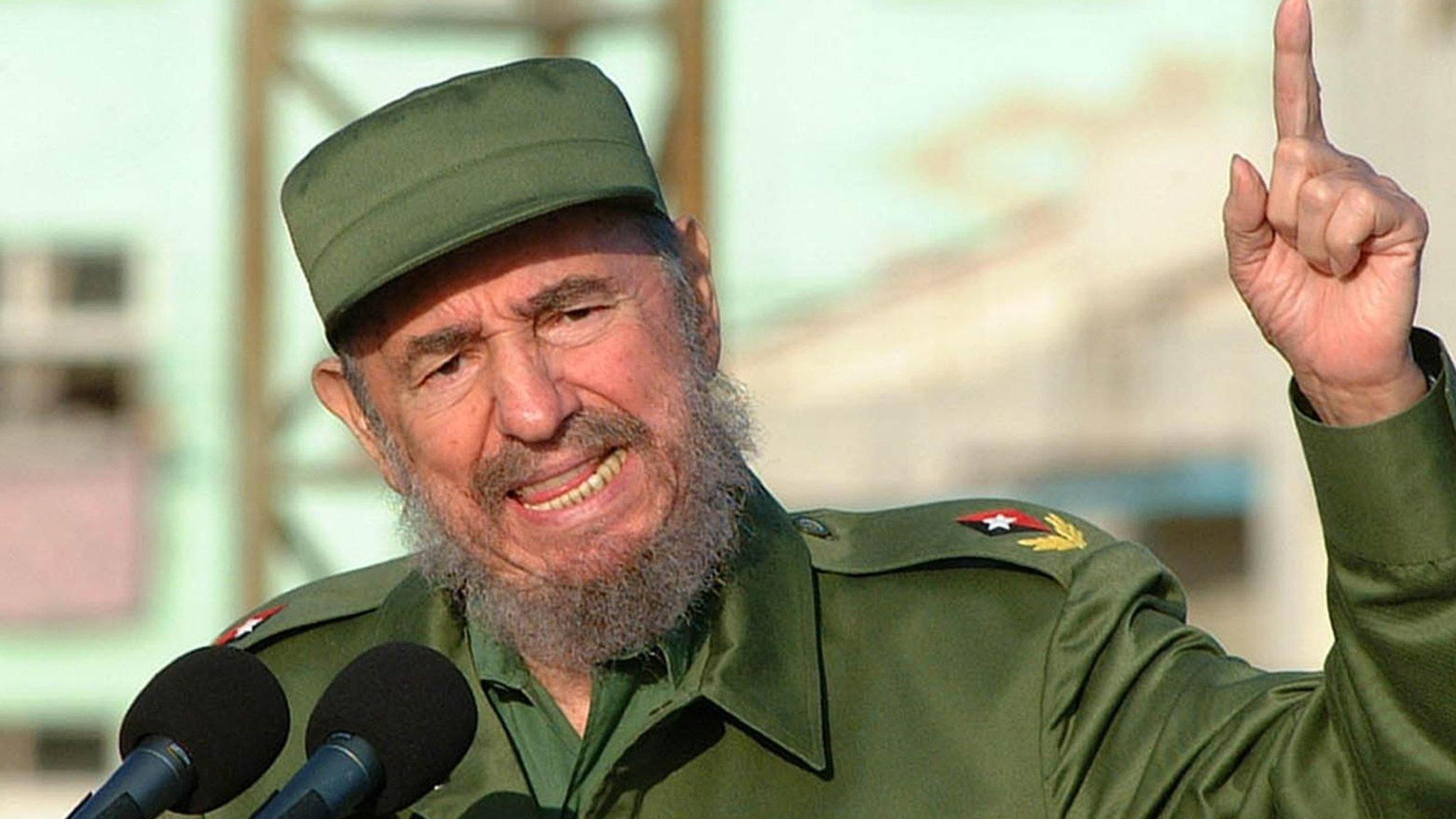Fidel Castro dies: 'I am of mixed emotions'
- Published
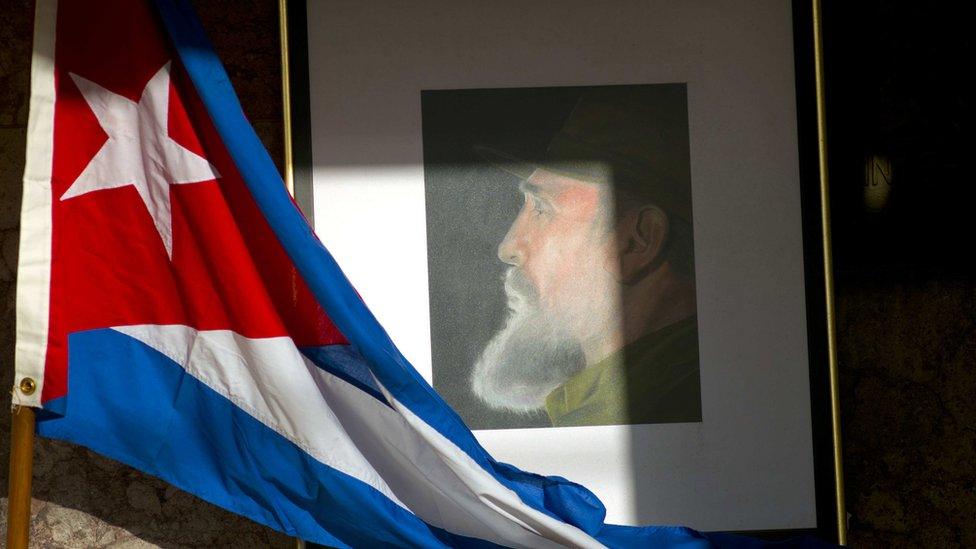
Fidel Castro, former Cuban president and communist revolutionary, divided opinion both at home and around the world.
Over 2.5m tweets about Castro and related trending terms have been published on Twitter.
The BBC asked people born in Cuba who have moved to other parts of the world how they felt at news of the 90-year-old leader's death.

Lilliam Quesada, US
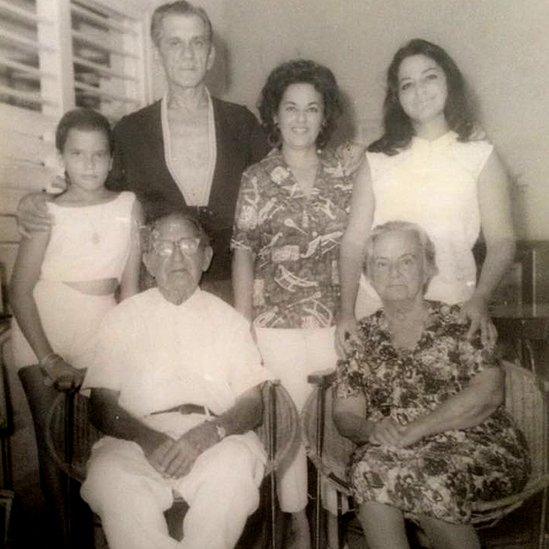
Lilliam (far left) with her family in Varadero, Cuba, 1968
"I was born in Cuba in January 1957, making me two years old when Castro came to power. My family and I left in February 1969. I haven't been back.
I understand both my family's hatred for Castro, given that they lost everything, and Castro's positive impact on the poor and dispossessed.
That said, I cannot get past Castro's oppressive regime and human rights violations.
I am of mixed emotions this morning. I can't forget that my grandparents and parents died away from their homeland, but I can't feel the euphoria that Cubans are feeling in the streets of Miami.
If Castro hadn't ruled with such an iron fist, I could look past what he did to my family and others who lost all their possessions. One side of my family was well off, the other was self-made. Both sides lost it all.
As a 60-year-old politically liberal Cuban, I feel numb."

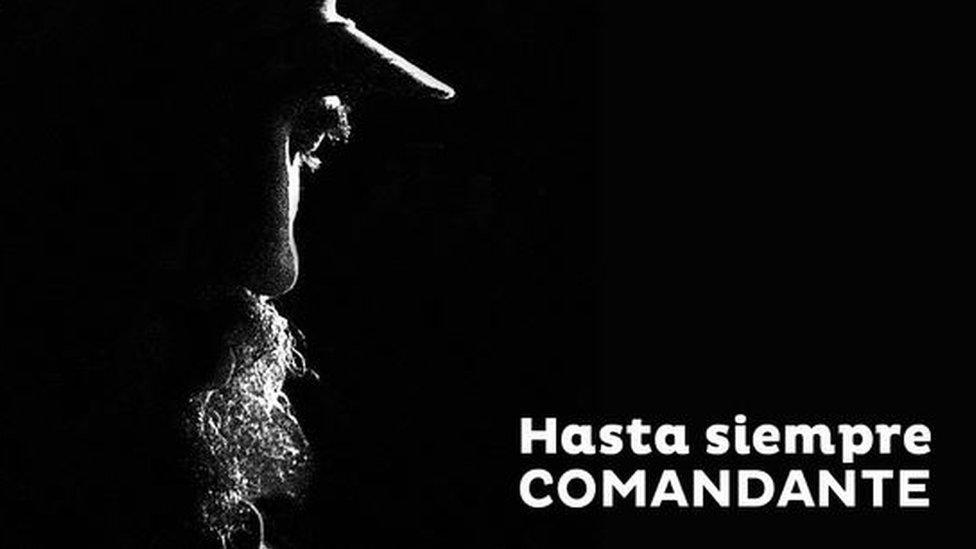
This image of Fidel Castro in silhouette has been tweeted over 1,300 times with the words 'Ever always commander'.

Anonymous, studying in Spain
"Both of my parents are professionals and always had good jobs, so it is not as bad as for other Cubans - at least we always have food.
As a young child I was happy and didn't even notice the 12-hour blackouts but by the age of 12, Cuba didn't look like a paradise any more.
Living in Cuba is a mix of a fairytale and a horror movie - life is complicated, hard. To understand Cuba you have to live it, cry it and fight it.
I cried when I heard about Castro's death not because I was sad or happy, but because it was a cry of freedom. Fidel represented the system of Cuba, and Cuba became Fidel.
He was a very smart man, a true leader. He had courage and knowledge, and touched people when he talked but power corrupts and that was what happened to him.
He gave power to Raul a few years ago but the system remains the same as when he ruled.
Fidel represents freedom and the fight against capitalism and consumption, but for most Cubans he represents a broken life and a lot of a pain."

People in Miami celebrate the news of Fidel Castro's death. Video: Bertis Rodriguez

Lucia Gonzalez, Florida, US
"This is a solemn time. I was born the year before the triumph of the Revolution and knew no other Cuba than 1960s Cuba.
There was an energy in those times that made me believe I had the power to determine my future, and with my actions contribute to shaping a better world.
My experience through the decades has been very conflicting. I remember the enlarged photos of Camilo [Cienfuegos], Che [Guevara], and Fidel in my grandmother's house. They were with the Revolution, with unwavering passion and joy.
My father was wholeheartedly against Fidel. In 1967 my parents requested visas to travel to the US as part of the Freedom Flights. My father lost his job in the textile industry and was sent to a concentration camp to work cutting sugar cane.
I worked in the fields, marched in support of the people of Vietnam and hoped that our exit permit never arrived. Yet, I didn't belong. Because we were leaving the country we were branded "gusanos", worms, and considered outcasts, traitors.
Being an outsider marked those years of my life. It was as if life had come to a halt while we waited to leave. We left on 4 August 1970 and I spent many years blaming my parents for their decision to tear me away from what I loved.
Twelve years passed before I was able to go back in 1982 at 26 years old. I wanted to redeem myself, to belong to the Revolution.
I joined other young Cuban Americans who shared my feelings, a generation that needed to make the statement that "el exilio", exile, had been our parents' decision.
The Antonio Maceo Brigade, external was made up of young Cuban Americans seeking reunification.
We travelled to Cuba seeking our roots, our identity and hoping for an opening of relations between the US and Cuba. My affiliation with the Brigade and my support of reunification made me an outcast and a persona non-grata among Cuban exiles.
Being able to return to Cuba on my own terms helped me heal many wounds and allowed me to reconcile the two parts of my life."

Fausto Oramas, Florida, US
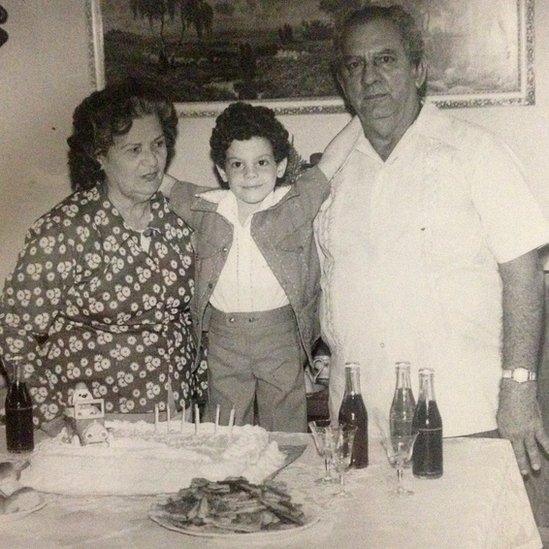
Fausto Oramas (centre) with grandparents
"I was born in Cuba in 1975. I lived there until 1998 when I left for Venezuela (before Hugo Chavez took power). Now I've settled in Miami with my family and become an American citizen.
Cuba was a country where they mix political ideology with love for your country.
At school I remember slogans pointed out that if you aren't communist, you don't love Cuba.
The country didn't let me study at university because we were trying to emigrate; I couldn't express my political views.
In the 1990s the persecution relaxed a little bit, after the fall of the Soviet Union but the one party politics never changed.
I don't feel attached to Cuba. The slogans and teaching from the communist regime took their toll on me.
Today I live happily in Miami, follow the premier league as well as the BBC, Fox and CNN. But I rarely read Spanish newspapers although Spanish is my first language."

"Two Cubans in Nottingham", UK
"When we heard the news of his death this morning it felt as if a family member had died.
He did what needed to be done under the circumstances.
When trying to bring social reforms to a small island nation against the wishes of the most powerful country on the planet, you are not given too many choices when surrendering is not in your character.
He brought out the best in us. His brand of nationalism made us believe that we were as good as anybody else (he didn't bring any other nationality down), determined to resist even though we had nothing, but at the same time generous.
I remember when in every classroom in the country [we] children were donating toys for the children of Vietnam.
I am proud of Fidel."
Compiled by the UGC and Social News team
- Published26 November 2016
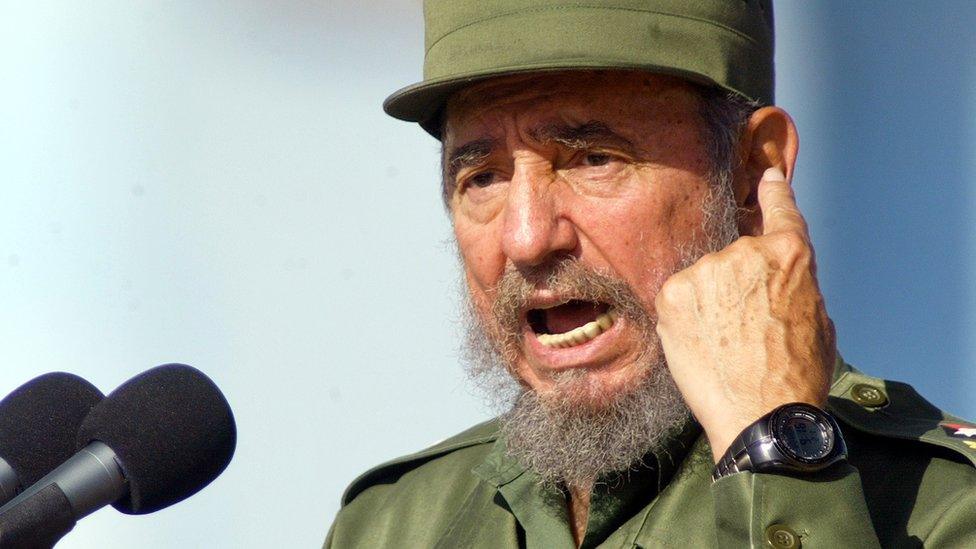
- Published26 November 2016
